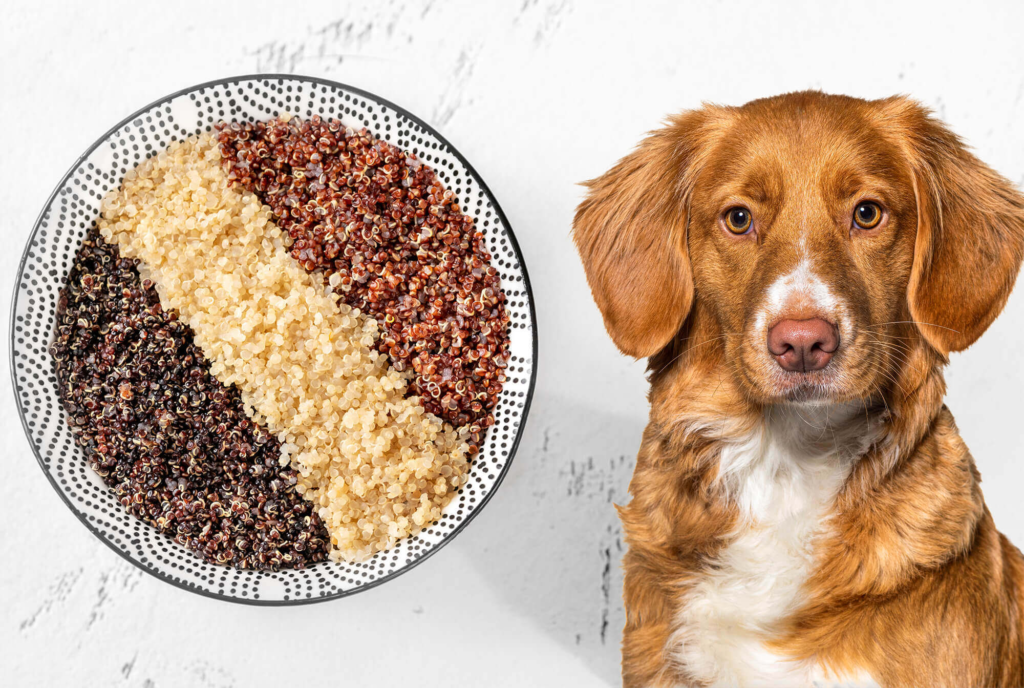
Quinoa has gained popularity as a nutritious and versatile grain alternative in human diets. As a dog owner, you may wonder if this superfood can be incorporated into your furry friend’s diet. In this article, we will delve into the topic of dogs and quinoa, exploring the potential nutritional benefits, considerations, and safe feeding practices to ensure the well-being of your canine companion.
- Nutritional Benefits of Quinoa: Quinoa is known for its impressive nutritional profile, containing protein, fiber, vitamins, and minerals. While dogs have different dietary requirements than humans, quinoa can offer certain benefits:
- Protein: Quinoa is a complete protein source, providing essential amino acids that are important for muscle development and overall health.
- Fiber: The fiber content in quinoa can promote healthy digestion and regulate bowel movements in dogs.
- Vitamins and Minerals: Quinoa contains various vitamins and minerals, including magnesium, phosphorus, and folate, which contribute to a well-balanced diet.
- Considerations for Feeding Quinoa to Dogs: While quinoa can be beneficial for some dogs, there are considerations to keep in mind:
- Digestibility: Dogs may have difficulty digesting large quantities of quinoa, particularly if it’s not cooked properly or if they have a sensitive stomach. Introduce quinoa gradually and observe how your dog responds.
- Carbohydrate Content: Quinoa is relatively high in carbohydrates, which may not be suitable for all dogs. Dogs with certain health conditions, such as diabetes or obesity, may require a lower-carbohydrate diet. Consult with your veterinarian to determine the appropriate balance of nutrients for your dog’s specific needs.
- Safe Feeding Practices: When offering quinoa to your dog, follow these safe feeding practices:
- Proper Preparation: Cook quinoa thoroughly and without added seasonings or ingredients that may be harmful to dogs, such as onion or garlic. Plain, unseasoned quinoa is the safest option.
- Portion Control: Quinoa should only make up a small portion of your dog’s overall diet. Consider it as an occasional treat or supplement rather than a staple food.
- Allergies and Sensitivities: Like any new food, monitor your dog for any adverse reactions after introducing quinoa. Some dogs may have allergies or sensitivities to grains, including quinoa.
- Alternative Grain Options: If quinoa is not suitable for your dog or you prefer to offer different grains, there are other options available:
- Brown Rice: Cooked brown rice is easily digestible and can be a gentle grain option for dogs.
- Oats: Plain, cooked oats can provide fiber and nutrients for dogs. Avoid flavored or sugary varieties.
- Barley: Cooked barley can be another nutritious grain alternative for dogs, offering fiber and vitamins.
Quinoa can be a beneficial addition to some dogs’ diets, providing protein, fiber, vitamins, and minerals. However, it’s important to introduce quinoa gradually, consider your dog’s individual needs and sensitivities, and follow safe feeding practices. If in doubt, consult with your veterinarian to ensure that quinoa is a suitable choice for your dog’s overall nutritional needs. Remember, a well-balanced and appropriate diet, tailored to your dog’s specific requirements, is key to their health and well-being.